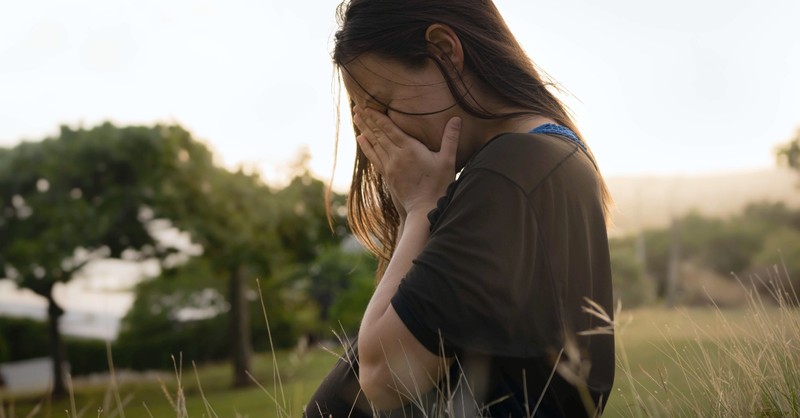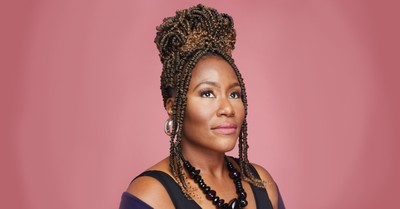How Can We Find Jesus after the Roe v. Wade Decision?
-
![]()
- Updated Apr 11, 2023

Like many Christian women, I felt conflicted about the recent Roe V. Wade Supreme Court ruling. I agree that the unborn must be protected, but what about women? How are they being protected? What about their lives? I look to Jesus for examples of how (ideally) I am to treat all people; how to respect all life; and for a wise, compassionate response to this ruling.
What perspective would Jesus bring? His interaction with the woman at the well suggests a few points, which help me to engage this subject and stay focused on the gospel instead of angry rhetoric.
So-Called ‘Fallen Woman’
All have sinned, all sin now, and all will sin. But according to her culture at this time, the Samaritan woman was an adulteress. It’s bad enough that she was a woman: first century, Middle Eastern women were second-class citizens.
She was both notoriously “fallen” and invisible at the same time, which is potentially how a woman in the church feels when she carries a burden like an unwanted pregnancy. If she is contemplating abortion or has ever had one, she experiences deep shame and isolation.
Jesus was a rebel just for talking to a woman, let alone a Samaritan whom the Jews would have utterly rejected.
Jesus regarded her with compassion just by talking with her, although he addressed her sin unflinchingly; “‘you have had five husbands, and the one you now have is not your husband’” (John 4:17-18).
But the point of his coming to earth was not to shame people: it was to glorify and obey the Father. His job was to show that God has the power to overcome sin.
This woman’s status before Jesus was no different than that of any other person because we are all sinners. When we realize that our sin is killing us in the flesh and the spirit, God’s gift becomes more precious to us, so we have to face it.
John 4 is not a story about Jesus forgiving a woman for a specific trespass but of a woman who was invited by Jesus into a family. She was rejected by her society and by the Jews who dared to say they loved the Lord yet treated another group of people with contempt and hostility.
He did not compromise his stance on marriage, and yet she felt safe; she was seen; he kindled something beautiful inside her heart so that she bravely shared the invitation. God is always available; we can cry out to him at any time.
What about his people? Can we go to someone who is contemplating having an abortion or who has already had one and put our arms around that person? I think that, although Jesus challenged the woman with her life choices, his first act was one of compassion: he was present.
Plank in the Eye
Every day, we all do sinful things (or fail to do something we should have.) We don’t all choose to have an abortion, thus ending a life, but who makes our clothes? Are factory workers paid a living wage, working in a well-lit, well-ventilated factory? Do they get days off?
An article by Quan Gao highlights the problem of poor working conditions in China for example, and reminds readers of the human cost, including 14 lives lost to suicide in one day not that long ago.
I remember a Christian lawyer speaking about a social justice group, which rescued slaves from forced labor in dark factories, which were essentially prisons.
What am I doing to end slave labor, sex trafficking, or racial violence? Just because I don’t kick puppies doesn’t mean my eyes are splinter-free. And what am I doing to help women who find themselves trapped in abusive situations where they don’t want to bring a baby into the world?
How am I contributing to the education of young girls who think their bodies are without value and who believe they will find sufficient comfort in sexual relationships?
How do I make it easier for women to say “I’m worth more than that? I can say “no”? Am I a safe person to talk to, or only if the other person comes around to my way of thinking?
We as a church pledge to be a family that glorifies God in unity and compassion for one another and our communities. Lord, open our hearts and our arms so we are willing to give our time to those in need.
Yes, we need to call out sin for what it is. Promiscuity, no matter what motivates it, is sinful. It potentially hurts both parties emotionally, physically, and spiritually. As for rape perpetrators: they must be held accountable, and their victims must be heard without judgment.
Sexual pressure, a form of emotional violence, needs to be brought out in the open. We must be walking with our brothers and sisters, not in a spirit of judgment but in honest and loving discipleship, keeping each other accountable; offering a safe listening ear, which does not condone but will always confront sin with compassion. The church should be a safe place, but it often is not.
Jesus didn’t vilify. He invited the Samaritan woman into a relationship with himself, the Messiah.
He Didn’t Talk to the Adulterous Man
You may think that it’s unfair that Jesus didn’t call out the Samaritan woman’s lover and rebuke him for his sin too. I’m convinced that Christ was not highlighting her sinfulness over his and neither were the disciples by featuring this event among the many they could have shared.
I think Christ and his disciples want us to notice how Jesus talked to women full stop. He was gentle and truthful and present when society said, “You don’t have to bother with them.” He also crossed religious and social barriers and we are meant to recognize this fact as well.
I don’t want to tar every man with the same brush — there are many lovely men out there who are willing to be corrected by their peers and to experience gospel transformation with the help of redemptively minded brothers and sisters in Christ.
I’ve met lots of guys who treat women with respect. But isn’t it so telling that he didn’t go get the man and have the same conversation?
It is and has always been typical for society to zero in on the woman’s role in unplanned pregnancies. Never mind that it takes two — the woman carries this baby, so she has responsibility for this life inside of her.
If sex has been a consensual choice, both parties were taking risks. Yet, Jesus let the man off the hook — or did he? I don’t think that’s it at all. Jesus was concerned about a healing revelation, not a condemning one.
Acknowledging the woman meant Jesus saw her plight and how unfair it was for her to be shunned. The point is not that Jesus talked to the woman instead of the man but simply that she was seen, she was heard, and she mattered.
I consider this scene so important because it’s also an example of why the Bible matters now: women had been marginalized, but not by Jesus. Not by God.
The Bible looks ahead to a time when treating women as accessories to their husbands would not be tolerated.
Notice how she spread the Word, too — she carried the message of salvation to the rest of the town. Jesus chose perfectly.
Open Dialogue, Closing Remarks
This subject won’t die because there are always going to be two sides vehemently opposed. It’s not like legislating new currency or choosing to replace traffic lights with roundabouts.
This is one of the most divisive topics in society. Christian: don’t be surprised that the world doesn’t see things God’s way; that our God’s notion of “sin” doesn’t match that of your society.
We don’t have to agree with the world; just, please, don’t hate on women who have abortions. That’s playing right into the Evil One’s hands. Remember Jesus’ unchanging nature instead, which includes his unflinching compassion for others.
For further reading:
What Does the Roe v. Wade Decision Mean for Christians?
5 Prayers for Women after Roe v. Wade Decision
What Is the Christian Perspective on the Roe v. Wade Decision?
Photo Credit: ©iStock/Getty Images Plus/globalmoments






















